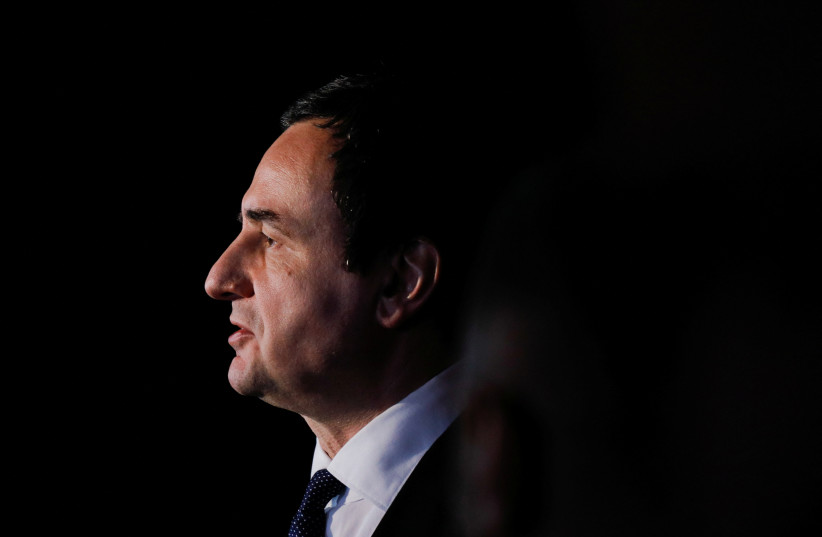Serbia wants normal relations with Kosovo but still won't sign any agreement with it, President Aleksandar Vucic said on Sunday, a day after he verbally agreed to implement a Western-backed plan for the normalization of ties.
Serbia wants to join the European Union, and a condition of membership is that it normalizes relations with ethnic Albanian-majority Kosovo, which declared independence in 2008 but which Belgrade still considers a Serbian province.
Vucic and Kosovo Prime Minister Albin Kurti agreed to implement normalization steps at a meeting with EU officials in a North Macedonian lake resort on Saturday, although no document was signed and the EU said it had wanted to go further.
"Serbia wants to have normal relations with Kosovo. We want to travel, we want to do business, you cannot live isolated behind 100 meters walls," Vucic told reporters on Sunday.
"I didn't want to sign the agreement on the implementing annex last night nor the EU-backed agreement (in Brussels last month)," Vucic told reporters. "I don't want to sign any international legally binding documents with Kosovo because Serbia does not recognize its independence."

Late on Saturday evening, Kurti said that the agreement represented "de facto recognition."
Kosovo, Serbia compromise on key issues
Under their verbal agreement, Kosovo committed to giving greater autonomy to Serb-majority areas, while Serbia agreed not to block Kosovo's membership in international organizations. The EU pledged to organize a donor conference for both countries, with the disbursement of financial aid dependent on steps to improve ties.
The EU's foreign policy chief, Josep Borrell, said on Saturday after the 12-hour meeting that the agreement reached had fallen short of a "more ambitious and detailed" EU proposal that the parties were unable to agree on.
He said Kosovo had lacked flexibility on the substance of the proposals, while Serbia had refused to sign the document although Belgrade was "fully ready to implement" it.
